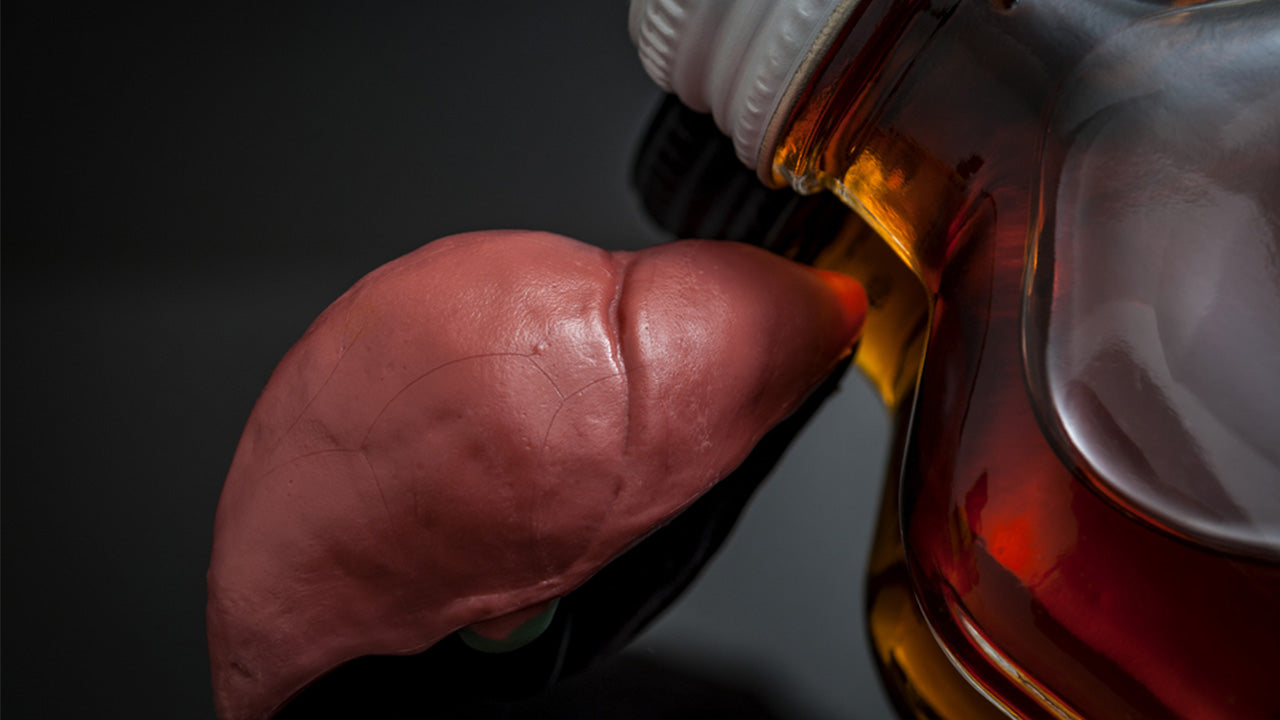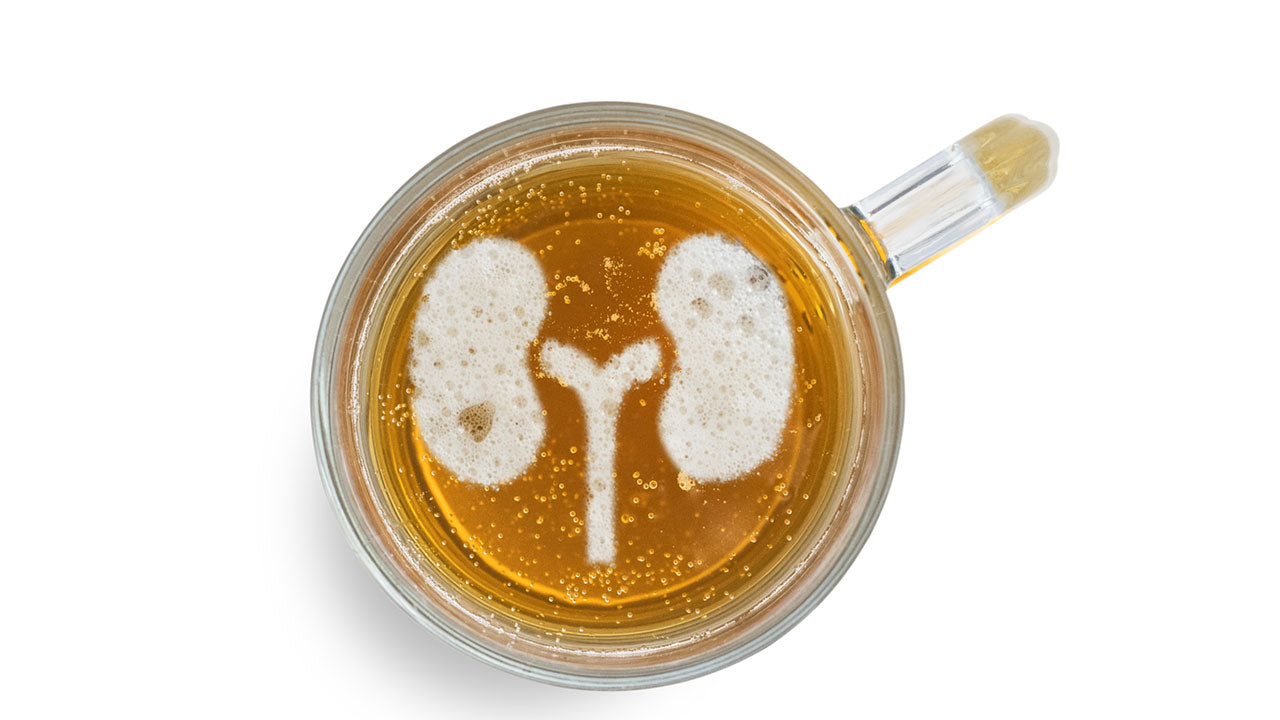Fetal Alcohol Syndrome: Cause, Symptoms, Treatment
 By: by Amino Science
By: by Amino Science

Fetal alcohol syndrome is a type of fetal alcohol spectrum disorder that’s caused by alcohol exposure prior to birth. According to the National Organization on Fetal Alcohol Syndrome, 1 in 100 babies in the United States is born with a fetal alcohol spectrum disorder, putting this group of conditions almost on par with autism—and making it more common than Down syndrome, cerebral palsy, cystic fibrosis, sudden infant death syndrome (SIDS), and spina bifida combined.
Of the fetal alcohol spectrum disorders, fetal alcohol syndrome is the most complex and least common, with the Centers for Disease Control and Prevention (CDC) estimating that approximately 1 out of every 1,000 infants is born with the condition. Though the severity of the disorder varies, fetal alcohol syndrome can have lifelong consequences that challenge every aspect of an individual’s life.
So with that in mind, this article will explore the many facets of fetal alcohol syndrome as well as its cause, symptoms to look out for, available treatments, and the one thing you can do to prevent this serious condition from ever affecting your family.
What Causes Fetal Alcohol Syndrome?
When a pregnant woman drinks alcohol, she’s unfortunately drinking for two. And this is because alcohol not only enters the mother’s bloodstream but also crosses the placental barrier and enters the bloodstream of the fetus.
In addition, when alcohol passes from the mother to the fetus, the fetus' blood alcohol level rises even higher than the mother's, as the fetus is unable to metabolize alcohol as quickly. Alcohol also interferes with the delivery of both oxygen and other nutrients, which harms the development of tissues and organs and leads to permanent brain damage.
Although several studies have suggested that low (one to four drinks per week) to moderate (five to eight drinks per week) alcohol consumption in the first trimester doesn’t harm the developing fetus, others have demonstrated just the opposite. Because of this lack of consensus, medical experts recommend that women who are pregnant or trying to become pregnant err on the side of caution and avoid all alcohol.
Moreover, the American Academy of Pediatrics (AAP) states that prenatal alcohol exposure is the “leading preventable cause of birth defects and intellectual and neurodevelopmental disabilities” in children, and that no amount of alcohol should be considered safe during pregnancy. Likewise, the National Academy of Medicine (formerly known as the Institute of Medicine) maintains that alcohol is more dangerous to a developing fetus than heroin, marijuana, and cocaine.
Risk Factors for Fetal Alcohol Syndrome
In general, the more alcohol consumption a pregnant woman engages in, the greater her chance of having a child with alcohol-related birth defects. Binge drinking is considered particularly dangerous, as it raises the level of alcohol in the fetus’ blood quickly and may lead to repeated symptoms of withdrawal. Binge drinking has also been shown in studies to result in especially severe cognitive and behavioral deficits.
Signs and Symptoms of Fetal Alcohol Syndrome
As stated earlier, the severity of fetal alcohol syndrome varies, but the condition can result in a number of signs and symptoms, ranging from physical and central nervous system problems to intellectual disabilities and issues coping. Perhaps the most immediately noticeable, however, are the characteristic abnormal facial features. These include:
- Short palpebral fissures
- Flat nasal bridge
- Thin upper lip
- Upturned nose
- Smooth philtrum
- Epicanthal folds
- Small head size
Other signs and symptoms of fetal alcohol syndrome affect a wide array of systems and may include:
| Joint, limb, and finger deformities | Growth problems |
| Vision or hearing difficulties | Heart, bone, and kidney problems |
| Poor coordination | Memory and attention difficulties |
| Developmental disabilities | Reasoning and problem-solving difficulties |
| Poor judgment and attention | Mood swings |
| Learning disabilities | Behavior and impulse control issues |
Complications of Fetal Alcohol Syndrome
The effects of fetal alcohol syndrome don’t end with childhood. Unfortunately, a number of so-called secondary disabilities have been linked to the syndrome as well. These include:
- Attention-deficit/hyperactivity disorder (ADHD)
- Antisocial behavior
- Alcohol and drug abuse
- Mental health issues, including depression and anxiety
- School and work difficulties
- Inappropriate sexual behavior
- Death by homicide or suicide
Fetal Alcohol Syndrome: Diagnosis and Treatment
In order to diagnose fetal alcohol syndrome, your health care provider will speak with you about your alcohol consumption during your pregnancy and monitor your child for signs of the syndrome, including physical, cognitive, and behavioral issues.
And because the symptoms of fetal alcohol syndrome can resemble those of other disorders, your doctor may also refer you to a specialist trained in distinguishing fetal alcohol syndrome from other conditions.
After receiving a diagnosis, it’s important to understand that even though fetal alcohol syndrome can’t be cured, many of its effects may be reduced with the aid of early intervention.
For example, the CDC states that children who are diagnosed early are more likely to achieve their developmental and educational potential with the help of appropriate educational classes and access to social services. In addition, research shows that a stable, nurturing, and safe home environment may be helpful in lessening the effects of fetal alcohol syndrome.
If your child is diagnosed with fetal alcohol syndrome, your health care provider may recommend some of the following interventions:
- Working with a team that includes a child psychologist, special education teacher, speech therapist, and physical and occupational therapists
- Scheduling early walking, talking, and social skills intervention
- Use of medications and nutraceuticals as needed for symptoms
- Arranging for special school services to help with learning and behavioral problems
- Treating medical problems, including vision issues and heart defects
- Providing vocational and life skills training
- Counseling to help parents and family deal with behavioral problems
The ramifications of fetal alcohol syndrome are significant but completely avoidable, so if you’re pregnant or thinking of becoming pregnant and are currently drinking alcohol—or feel you may have a problem with alcohol use—be sure to speak with your health care team. They can help determine your fetal alcohol syndrome risk and identify strategies to support both you and your pregnancy.


Up to 25% off Amino
Shop NowTAGS: conditions
Join the Community
Comments (0)
Most Craveable Recipes




 833-264-6620
833-264-6620



















